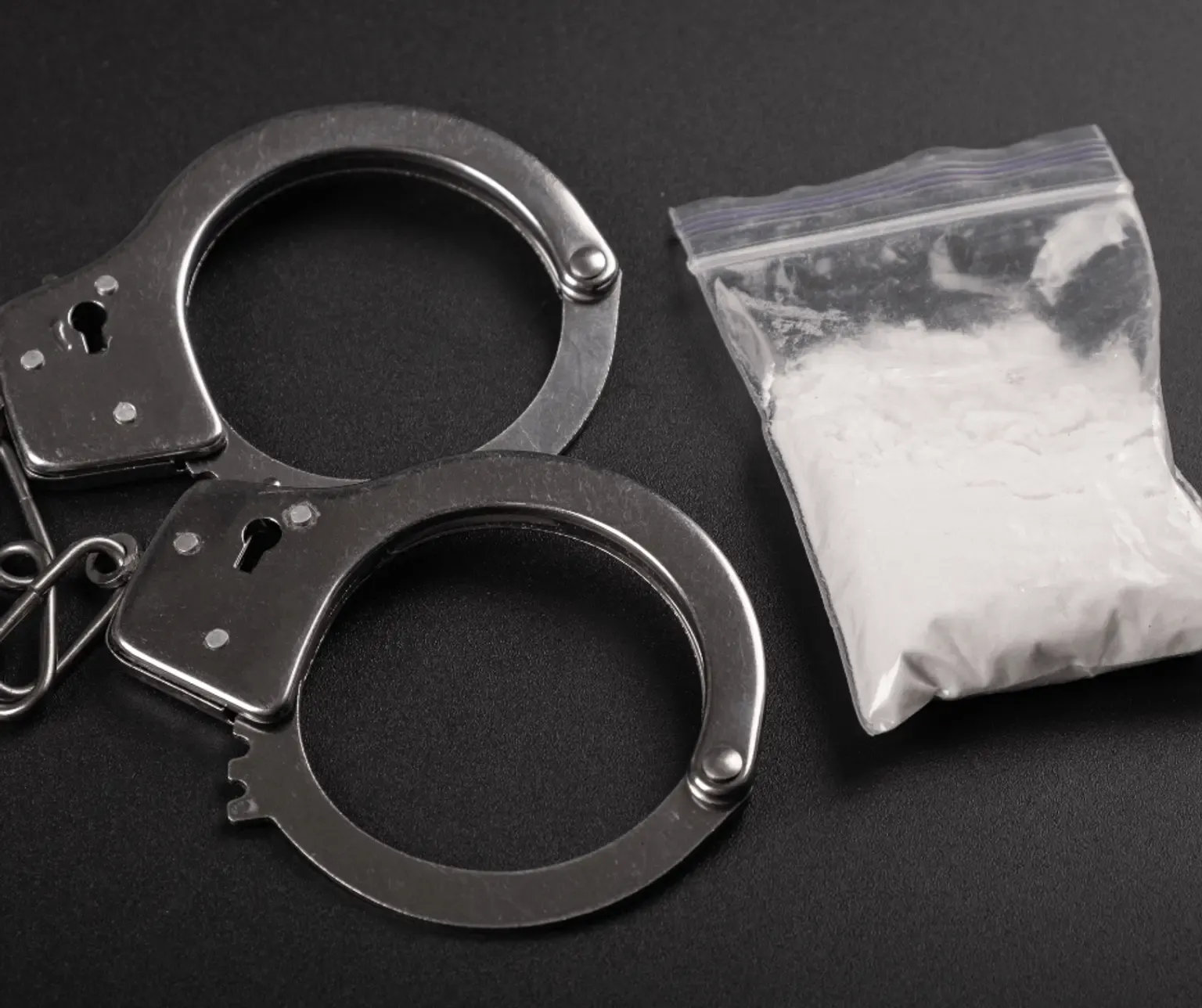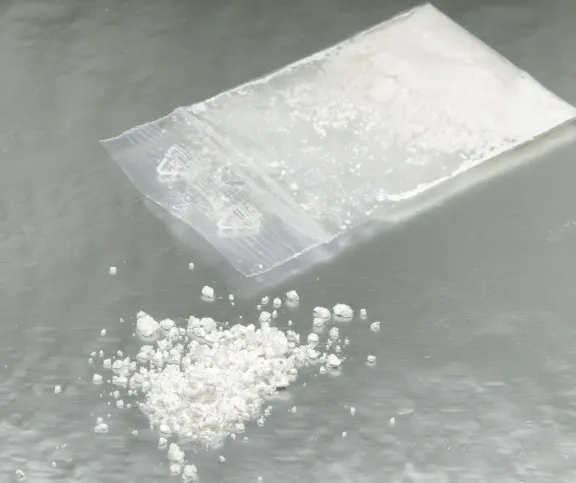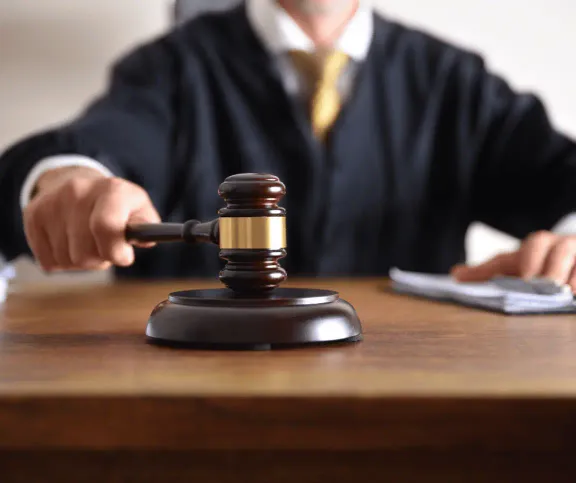Possession of Cocaine in the UK – Legal Consequences and How a Solicitor Can Help

You are out with friends, enjoying the night. Suddenly, you are stopped by police, searched, and a small amount of white powder is found. In that moment, your entire life changes. Possession of cocaine is treated as a very serious offence in the UK.
Cocaine is classified as a Class A drug under the Misuse of Drugs Act 1971, which means the consequences can be severe. Even being found with a small amount can lead to an arrest, criminal charges, and a permanent criminal record.
This guide explains exactly what happens if you are caught with cocaine, the penalties you could face, and how an experienced solicitor like us can help protect your future. If you or someone you care about is dealing with a cocaine possession allegation, understanding your rights and acting quickly is vital.
Legal Status of Cocaine in the UK
In the UK, cocaine is a Class A drug under the Misuse of Drugs Act 1971. Class A drugs are considered the most harmful and carry the most serious penalties.
There are several types of offences involving cocaine:
- Possession: Having cocaine for personal use, even in small amounts.
- Supply: Selling or giving cocaine to another person, whether or not money changes hands.
- Production: Manufacturing or preparing cocaine, which includes involvement in making or packaging the drug.
The penalties vary depending on the type of offence:
- For Class A drug possession UK, you could face up to 7 years in prison, an unlimited fine, or both.
- For supply or production, the penalties are much harsher, with a maximum sentence of life imprisonment and an unlimited fine.
Even a simple possession charge is treated seriously by the police and courts. Understanding the difference between possession, supply, and production is crucial, as the consequences can change your life dramatically.
Immediate Consequences of Being Caught With Cocaine
Being caught with cocaine in the UK can have immediate and serious consequences. Understanding the process that follows can help you prepare and protect your rights.

Stop and Search
Police have the power to stop and search you if they suspect you are carrying drugs. If cocaine is found, the officers will decide how to proceed based on the situation.
Police Caution or Arrest
Depending on the amount found, your behaviour, and your criminal history, the police may:
- Issue a police caution: A formal warning that avoids prosecution but still appears on your record.
- Issue a Penalty Notice for Disorder (PND): A fixed fine for possession of a small amount, often used for first-time offenders.
- Carry out a cocaine possession arrest UK: You are taken to the police station for questioning.
Evidence Gathering
At the police station, officers will gather evidence. This could include:
- Testing the substance to confirm it is cocaine
- Interviewing you under caution
- Seizing any drug paraphernalia found with you
- Checking for text messages or contacts suggesting supply
Factors That Influence the Police Decision
Several factors affect whether you receive a caution, a PND, or face full prosecution:
- Quantity of cocaine found
- Whether there is evidence of intent to supply
- Your previous criminal record
- Your behaviour during the stop and interview
Understanding your rights early and seeking legal advice quickly can make a real difference to the outcome.
Penalties for Cocaine Possession
The cocaine possession penalties UK can vary depending on the facts of the case. The police and courts will consider the amount of cocaine found, your criminal history, and whether there is any evidence of supply.
Possible Outcomes After Being Caught
If you are found with cocaine, you could face:
- Police caution: A formal warning without prosecution, often used for first-time offenders with small amounts.
- Penalty Notice for Disorder (PND): A fixed fine, avoiding court, usually for minor possession cases.
- Arrest and charge: Leads to a court appearance and potentially a criminal conviction.
Sentencing Factors
The Sentencing Council guidelines for drug offences highlight the importance of:
- The quantity of drugs involved
- The role you played (user vs supplier)
- Any previous convictions
- The presence of aggravating factors (such as possession near schools)
The maximum penalty for cocaine possession sentencing UK is 7 years in prison, an unlimited fine, or both. However, many first-time offenders with small amounts face lower sentences.

Quick Comparison
Offence Type
Likely Outcome
First-time possession (small amount)
Caution or PND
Repeat possession offence
Higher fine or community order
Possession with intent to supply
Custodial sentence, possibly several years
Every case is different. Early legal advice can significantly reduce the penalties you might face.
First-Time Offenders
If you are facing a cocaine possession first offence, the police and courts may take a more lenient approach. However, the outcome still depends on the specific circumstances.
When caught with a small quantity for personal use and no signs of intent to supply, you may be offered:
- A police caution, which avoids a criminal trial but still goes on your record
- A Penalty Notice for Disorder (PND), which results in a fine but no formal conviction
Several factors make a lenient outcome more likely:
- It is genuinely your first offence
- The amount of cocaine found is very small
- You co-operate fully with the police
- There is no evidence suggesting supply or wider criminal activity
Even if it is your first offence, proper legal advice is vital. Our conspiracy solicitors can help argue for a caution or a penalty notice instead of a prosecution. They can also make sure your rights are protected throughout the process.
At MMA Law, we understand how stressful a cocaine possession first offence can feel. Getting early advice can help you achieve the best possible outcome and minimise the impact on your future.
Repeat Offences and Aggravating Factors
If you are caught with cocaine a second or third time, the consequences become much more serious. Courts treat Class A drug possession repeat offences far more harshly than first-time mistakes.
What Happens After a Repeat Offence?
For a second or later offence, you are much less likely to receive a caution or penalty notice. Instead, you are more likely to face:
- A formal charge
- A criminal trial at the magistrates' court or crown court
- A greater risk of a custodial sentence
Judges and magistrates must follow stricter sentencing guidelines. Especially if aggravating factors are present.
Common Aggravating Factors
Certain circumstances make sentences even tougher:
- Possession near a school: The courts take a very dim view of drugs found close to educational settings.
- Possession with paraphernalia suggesting supply: Items like scales, baggies, or lists of customers could suggest possession with intent to supply.
- Large quantities of cocaine: Even without clear evidence of supply, large amounts increase the seriousness of the offence.
For repeat offenders, prison becomes a much stronger possibility. Especially where aggravating factors are involved. Sentences can range from community orders to several years’ custody depending on the severity of the case.
Getting early legal advice is even more crucial if you have previous convictions for drug offences.

Legal Defences and Mitigating Circumstances
If you are facing a charge for possession of cocaine, having the right legal team on your side is critical. At MMA Law, we specialise in building strong cocaine possession defence UK cases and securing the best outcomes for our clients.
Possible Legal Defences
Depending on the facts, our solicitors can explore several possible defences, including:
- Lack of knowledge: You were unaware the cocaine was in your possession.
- Duress: You were forced or threatened into carrying the drugs.
- Unlawful search and seizure: If police officers carried out an illegal stop and search, we can challenge the admissibility of the evidence.
Our team will carefully review every detail of your arrest, the police procedures, and the evidence against you. We leave no stone unturned when defending your case.
Mitigating Circumstances
If a full defence is not possible, our solicitors can still present strong mitigation to reduce your sentence. We can argue for a lighter penalty by highlighting:
- Early guilty plea to show responsibility and remorse
- Personal circumstances, such as hardship or medical issues
- Voluntary rehabilitation, demonstrating steps you have taken to change
We understand how stressful drug charges are. Our goal is to protect your future, minimise the impact on your life, and secure the best possible result for your case.
How Being Caught With Cocaine Can Impact on Employment and Travel
A cocaine possession criminal record can have lasting consequences beyond the courtroom. It may affect your job prospects, professional reputation, and ability to travel internationally.
Employment Issues
Many employers now carry out criminal record checks, especially in sectors like:
- Law
- Healthcare
- Education
- Financial services
- Government work
For these professions, even a caution or conviction for drug possession must usually be disclosed. It can make passing security clearance checks much harder.
Even in industries that do not formally require disclosure, a criminal record can still influence hiring decisions. Some employers may ask about previous convictions during the recruitment process.
Travel Restrictions
A cocaine possession criminal record can also affect your ability to travel abroad. Countries like the United States and Australia have strict visa rules. You may be refused entry or need to apply for a visa instead of using a standard travel authorisation. Disclosure of drug offences is often mandatory during visa applications.
Although every case is different, having a conviction on your record can close doors in both work and travel. Early legal advice from a specialist solicitor can help you avoid long-term consequences where possible.

FAQs About Possession of Cocaine Charges in the UK
What happens if you get caught with cocaine for the first time in the UK?
If you are caught with cocaine for the first time, the police will assess the situation carefully. For small amounts intended for personal use, you may receive:
- A police caution
- A Penalty Notice for Disorder (PND)
- Or a formal arrest leading to prosecution
Factors such as your previous criminal history, the quantity found, and your cooperation will influence the decision. First-time offenders are often eligible for more lenient outcomes, especially if they seek early legal advice. Cocaine remains a Class A drug under the Misuse of Drugs Act 1971, so the offence is always treated seriously.
Will I go to prison for possession of cocaine?
It depends on the facts of your case. The maximum penalty for cocaine possession in the UK is 7 years' imprisonment and/or an unlimited fine. However, under the Sentencing Council guidelines, first-time or low-level offenders are more likely to receive:
- A caution
- A community order
- A suspended sentence
Repeat offences, large quantities, or possession linked to intent to supply can lead to immediate custody. Having a solicitor from the outset greatly improves your chances of receiving a lesser penalty or avoiding prison altogether.
Does a caution for cocaine possession go on my criminal record?
Yes, a police caution for cocaine possession forms part of your criminal record. Although a caution is not a conviction, it can still show up on:
- Basic DBS checks for employment
- Enhanced checks for sensitive professions like healthcare, education, or law
Under the Disclosure and Barring Service (DBS) rules, a caution may become spent after a short period but must still be declared for certain roles. Our criminal defence solicitors can help you understand your disclosure obligations if you receive a caution or conviction.
How does the police decide between caution, PND, or arrest?
When deciding the next step after a cocaine possession stop, police officers consider:
- The quantity of cocaine found
- Your previous criminal history
- Whether drug paraphernalia or evidence of supply is present
- Your behaviour during the search and interview
Minor possession cases often lead to a caution or PND for first-time offenders. However, if there are aggravating factors, such as possession near a school or previous convictions, you are more likely to face a cocaine possession arrest UK and formal charges. Early legal advice at the police station can influence the outcome significantly.
Can I get legal aid for a cocaine possession charge?
Yes, you may be able to get legal aid for a cocaine possession charge if you meet the eligibility criteria.
The Legal Aid Agency will assess:
- Your income and capital (means test)
- The seriousness of the case (merits test)
Cases involving Class A drugs are often considered serious enough to qualify for funding.At MMA Law, we can assess whether you are eligible for legal aid and help you apply quickly. Having professional legal representation funded through legal aid ensures you get the defence you deserve without worrying about legal costs. Contact us for your free 30 minute legal consultation.
Conclusion
Being charged with possession of cocaine is a serious matter that can affect your future in many ways. The right legal advice can make all the difference to the outcome.
If you are facing a cocaine possession charge, remember:
- Cocaine is a Class A drug with tough penalties under UK law
- First-time offenders may receive cautions or fines
- Repeat offences and aggravating factors increase the risk of prison
- Proper legal defence can reduce or even avoid criminal consequences
- Early advice protects your rights and improves your case
At MMA Law, our expert solicitors are ready to help. We offer clear, supportive legal guidance from the moment of arrest to the conclusion of your case. Contact our team today to arrange your free 30-minute legal consultation. Get the advice you need to protect your future.
